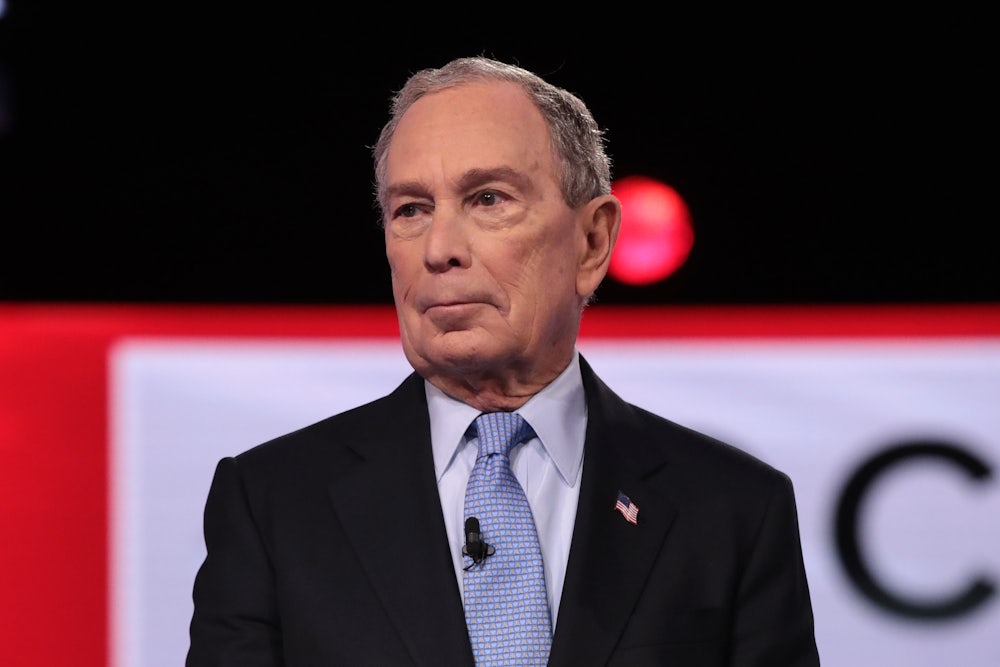The Democratic Party has a monopoly on a product known as the “primary season” that is very much in demand. Like any good monopolist, it is milking its captive audience (Democrats) for all they’re worth. None of this is particularly shocking—just imagine yourself as a tech columnist and think of the party as a platform—but the end result produces a series of debates built around two complementary factors: What works for television, and what works for the party organization.
CBS News concluded tonight’s debate by literally lying to the audience about there being more debate to be had after its final commercial break, but every advertisement for Viking Cruises or Ring home self-surveillance cameras you sat through waiting to learn the debate had, in fact, ended should leave you wondering why the party allows these debates to be a for-profit telecast to begin with, instead of just letting a nonprofit news organization stage them and allowing any third party to broadcast them at no charge. (The networks would air these things without exclusivity, I promise you, against just about anything but an NFL playoff game.)
It seems mainly like a gentleman’s agreement that everyone ought to get a little green from the arrangement. Tonight’s debate was not simply a public service, allowing South Carolina’s voters to hear closing arguments in advance of this weekend’s primary: It was also a fundraising opportunity.
As others have noted, tonight’s audience was weird. Which is to say, it was wealthy: “The only guaranteed way to get a ticket is to become a sponsor of the debate,” WCSC reported before the debate. “Sponsorship ranges from $1,750 to $3,200 each for attendance to multiple ‘First in the South’ events.”
That is not quite a complete explanation for how and why the crowd seemed oddly sympathetic to billionaire Michael Bloomberg after its hostility in Nevada—even Bloomberg seemed slightly surprised by how lustily the audience booed Elizabeth Warren’s invocation of the entirely credible claim (also challenged by the moderators) that he insisted a pregnant employee terminate her pregnancy—but it helps to explain the tenor of the evening. Having erected a paywall, the Democrats most comfortable with plutocracy were free to negotiate how they’d operate within it.
Few of the candidates were as explicit as Bloomberg announcing that China’s “stealing of intellectual property” was a priority his administration would address, in terms of orienting their message solely to the oligarchy. Nevertheless, it did seem like the makeup of the audience allowed most of the moderate candidates, and the moderators, to have the entire debate carried out on the terms they preferred: with an unquestioned assumption that things are mostly fine, which is an odd message for anyone looking to unseat an incumbent.
But packing your audience with wealthy donors and giving your nominating contest over to TV news producers will, at least, provide unintentionally revealing moments. CBS’s official rush transcript of the debate gives us this explanation of how Democrats won a majority in the House:
BLOOMBERG: Let’s just go on the record.
They talk about 40 Democrats; 21 of those were people that I spent $100 million to help elect. All of the new Democrats that came in and put Nancy Pelosi in charge and gave the Congress the ability to control this president…
(CHEERING AND APPLAUSE)
BLOOMBERG: … I—I got them.
But what everyone watching in the audience heard, along with the people at home, was the former New York City mayor’s clear first instinct to say, “I bought them.” And indeed, he believes he did this very thing. That is Bloomberg’s theory of politics: Men buy the outcomes they desire, just as his campaign may have purchased the audience it needed. The next stage of this primary season, including South Carolina’s weekend election, will either prove him right or wrong.
